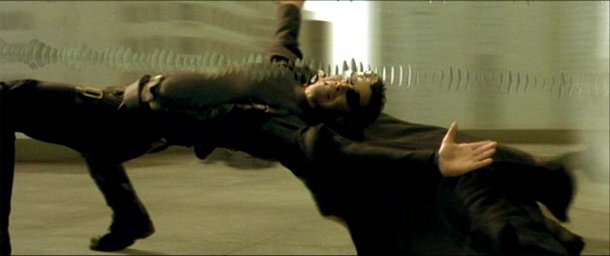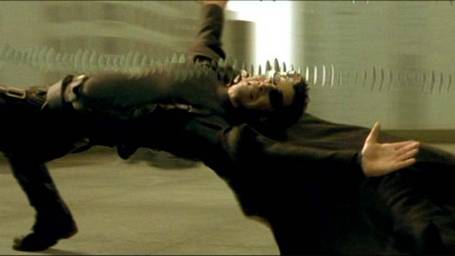“Ready steady slow”: time slows down when we prepare to move
Source: blogs.discovermagazine.com

A baseball speeds from the hands of a pitcher, a slave to Newton’s laws. But in the brain of the batter who is watching it, something odd happens. Time seems to dawdle. The ball moves in slow motion, and becomes clearer. Players of baseball, tennis and other ball sports have described this dilation of time. But why does it happen? Does the brain merely remember time passing more slowly after the fact? Or do experienced players develop Matrix-style abilities, where time genuinely seems to move more slowly?
According to five experiments from Nobuhiro Hagura at University College London, it’s the latter. When we prepare to make a movement – say, the swing of a bat – our ability to process visual information speeds up. The result: the world seems to move slower.
At first glance, this might seem to contradict a now-classic experiment by David Eagleman. He threw volunteers off a tall fairground ride and asked them to stare at a special watch, to see if their perception of time would slow. It didn’t. They merely remembered the experience as being long and drawn out afterwards.
But there’s a critical difference between the two studies. Eagleman studied time perception while people were actually undergoing a crisis—in this case, falling to their possible doom. But Hagura showed that time appears more leisurely before an event, rather than during it—when we’re preparing to move, rather than moving.
Hagura first asked volunteers to press a key for as long as a white disc appeared on a screen. The disc would then be replaced by a hollow target. In some trials, the volunteers had to release their key and touch the target. In others, they were told to keep pressing the key. In every case, they had to say how long the white disc stayed up for, compared to all the previous trials in the experiment. Hagura found that the volunteers deemed the durations to be longer if they were preparing to move, than if they were planning to keep still.
Perhaps the volunteers who were about to reach out were just more excited or attentive? Not so. When Hagura changed the task from pressing (or not pressing) the target, to naming (or ignoring) a letter, the time-slowing effect vanished. Preparing to move makes the difference, rather than just preparing for any old task.
In a third variation, the white disc was replaced by two possible targets instead of just one. In some trials, the disc had a line that told the volunteers which of the two targets was correct, allowing them to prepare the right movement. In other trials, there was no line, and the volunteers had to make their move when the two targets appeared. As you might have guessed by now, they thought the white disc stayed up longer if they were preparing to move their arm in a specific direction, but not if they were simply waiting.
These three sets of results support the idea that time moves more slowly when we prepare an action. But they could also be explained in the same way that Eagleman’s results were: Time only seemed to pass more slowly because the volunteers remembered it doing so.
[...]
Read the full article at: discovermagazine.com
Study: Time really does slow for top athletes






















